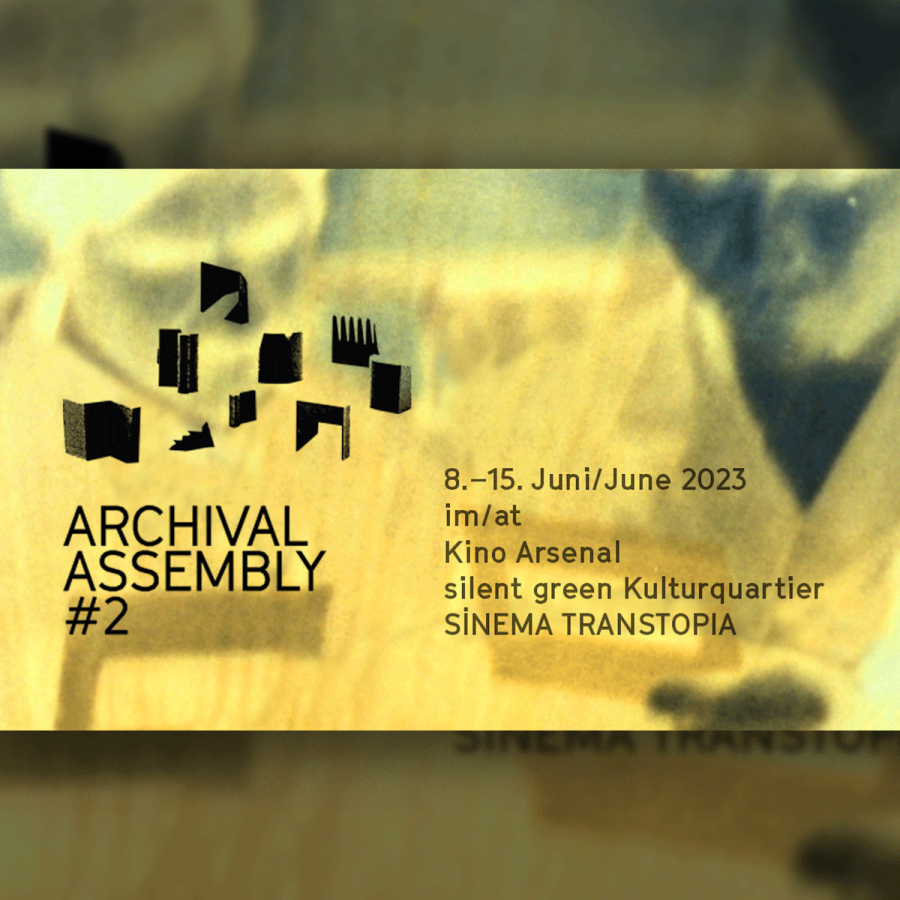Congratulations to the A/CA members who recently presented their research at the Arsenal - Institute for Film and Video Arts' Archival Assembly #2 from June 8-15th in Berlin! For more information about the panels, screenings, and exhibitions that compose this event's program, please visit the Archival Assembly website. See below for select details for the sections that included A/CA participation.
Accidental Archives Symposium
June 10, 10.00–11.15: Cinékinships: Creating New Networks of Film Culture
With Filipa César, Catarina Simão, Michael Zryd (York University), Moderation: Erica Carter (King’s College London)
The term ciné-kinships was born out of collaborative and transnational archival work in Guinea-Bissau. Delving into the archives, one encounters relations and relationships that were previously hidden. An accidental archivist is never alone: In order to open up archives, one needs allies whose multi-perspective access to the archive brings out its own multiperspectivity. The panel discusses networks and communities of solidarity who grasp the complexity of archives and the process of rendering them productive.
June 10, 11.30–12.45: The Vast Domain of Unseen Films: Mapping the Cinema We Never Knew (and Probably Never Will)
With Hadi Alipanah (Cinema-ye Azad)/Afsun Moshiry, Sema Çakmak (Goethe-Universität Frankfurt), Almudena Escobar López (Toronto Metropolitan University), Moderation: Mohammad Shawky Hassan
In a 1993 essay, curator, filmmaker and writer Eric de Kuyper spoke of the “vast domain of cinema as non-art,” which was stored away in archives such as the Nederlands Filmmuseum, of which he formerly was the director. Beyond the canon—surviving often only in fragments and bits and pieces—educational, industrial, scientific and minor non-fiction films constitute the bulk of what we might expansively call cinema. Thirty years on, we have to ask: How much of that unseen cinema do we now know, and how much more unseen cinema is there?
June 10, 16.00–17.15: Lost Platforms: Accidental Archivism and the Overpromise of Technology
With Özge Çelikaslan, Philipp Dominik Keidl (Utrecht University), Jasmina Metwaly, Moderation: Vinzenz Hediger
Platforms and portals carry a promise of unlimited access to moving images. With digital formats, all of film history can potentially become available at the click of a mouse. Or so it might seem. Neither Netflix nor YouTube have fulfilled such a promise but rather simply reshaped the market for film in significant ways. Yet, smaller repositories and strategies such as the Korean National Film Archives policy of putting all its restored holdings on YouTube, point the way for different uses of digital platforms.
Found Futures Panels
June 12, 10.00-11.30: Archive/Counter-Archive (A/CA): Activating Canada's Moving Image Heritage is a seven-year research and art project based at York University and led by Janine Marchessault and Michael Zryd. In partnership with more than 20 archival and artists' organizations in Canada, A/CA works to activate and preserve audiovisual archives created by Indigenous People (First Nations, Métis, Inuit), Black communities, People of Colour, women, LGBT2Q+ and immigrant communities were created. Andrew Bailey discusses A/CA's commitment to artist grants as a form of artistic research before presenting short film excerpts by Jennifer Dysart and Nadine Valcin, two experimental archival filmmakers who recently completed residencies at Library and Archives Canada.
Screenings
June 11, 19:15: Ancestralidad y trance
The joint project of the Mexican film collective Colectivo los Ingrávidos (Teuhacán) and the curator Almudena Escobar López (Galicia) sees cinema as a ritual practice that brings together the empirical and the shamanic. It challenges traditional cinematic viewing experiences by creating connecting spaces of heightened awareness and listening. The project, which emphasizes the structural properties of images as a political gesture, aims to create a cinematic trance of history, myth and embodiment that bridges tradition and avant-garde. Poetry becomes a form of documentation for those invisible to the state; Home movies filmed by tourists conjure up archaic snakes, Images of burned film archives are layered over police footage, colonial archives take on a suffocating physical quality. This multi-layered cinematic ritual connects the omens of the ancestors with the present and culminates in a hallucinatory cinematic trance that deals with over 500 years of plunder and excess. In a choreography of 13 short films, each visual moment becomes a historical node that documents the cinema apparatus' inherent relationship to colonial power structures. which grapples with over 500 years of plunder and excess. In a choreography of 13 short films, each visual moment becomes a historical node that documents the cinema apparatus' inherent relationship to colonial power structures. which grapples with over 500 years of plunder and excess. In a choreography of 13 short films, each visual moment becomes a historical node that documents the cinema apparatus' inherent relationship to colonial power structures.
The website of "Ancestralidad y transe" collects texts and films of the collective, including the "Thesis on the Audiovisual" ( PDF English version). Also available online is the audio recording of a conversation between Almudena Escobar López and the Colectivo Los Ingrávidos on the relationships between archives, colonialism and image production. The conversation was conducted in Spanish. A transcript is available in English.


